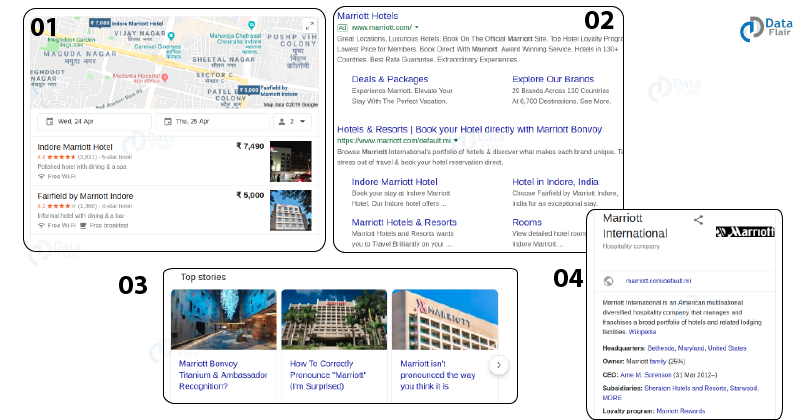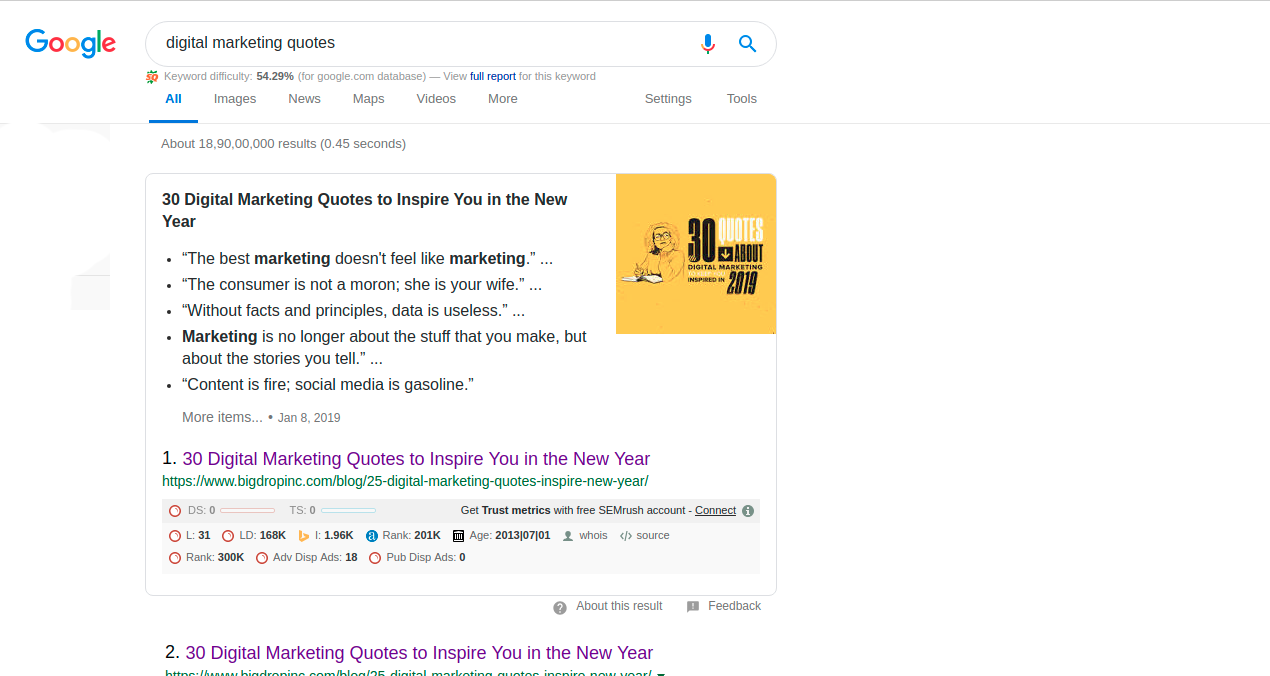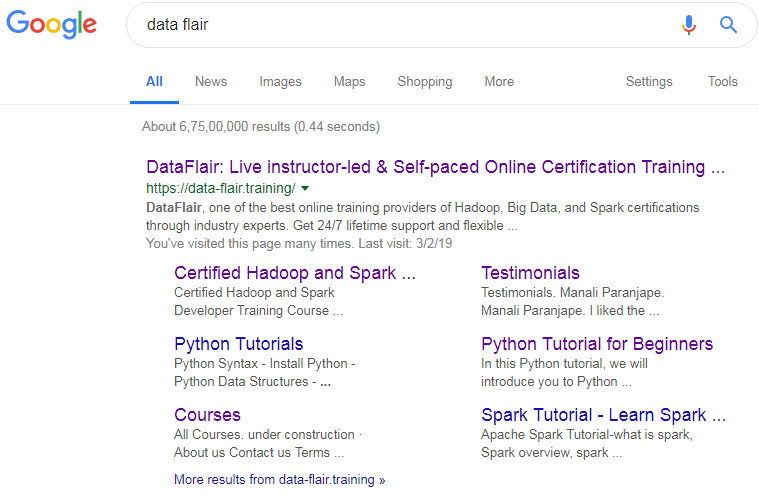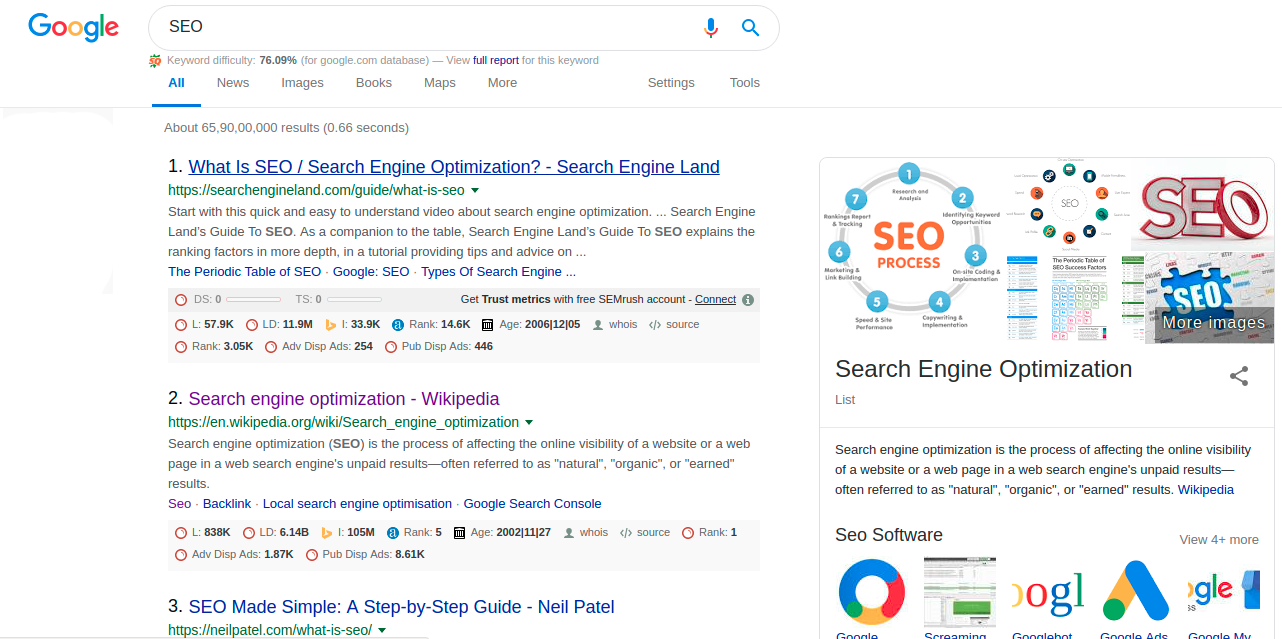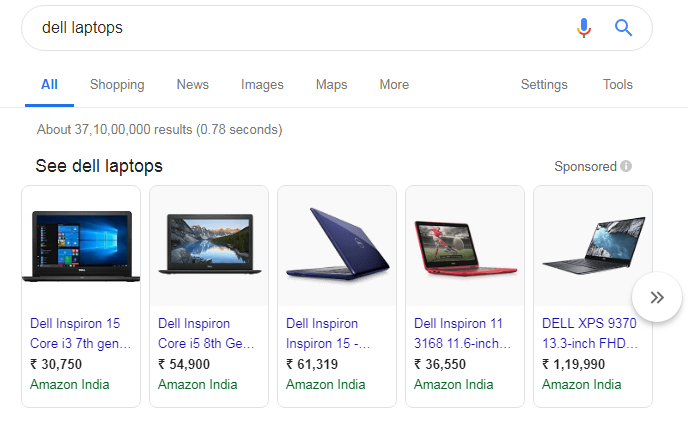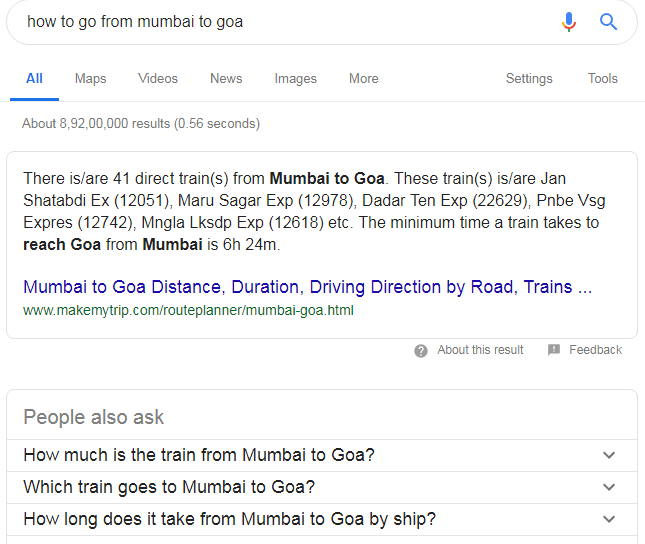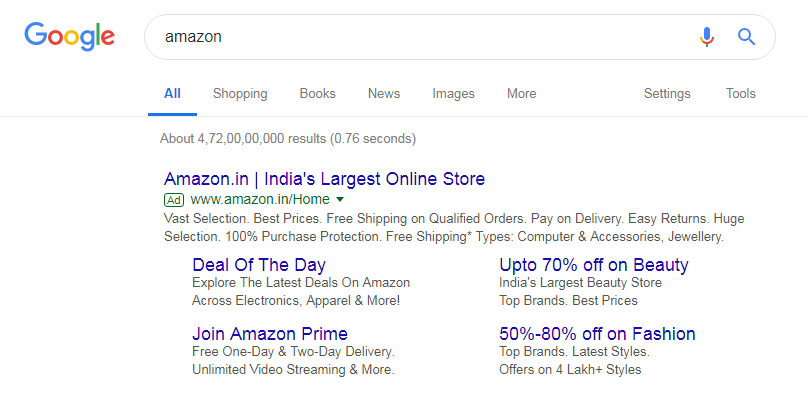What is SERP? Everything You Need to Know About SERP
FREE Online Courses: Elevate Skills, Zero Cost. Enroll Now!
SERP stands for Search Engine Results Page. It refers to the listing of web pages that are returned by search engine in response to a keyword query. SERP is displayed according to the user’s chosen keywords. In this blog, we will discuss the concept of SERP in detail.
1. What is SERP?
SERP appears when an online user searches for any information. Every SERP displayed is unique and is related to the searched query performed on any search engine. In order to provide a great user experience, search engines customize the SERP according to the searched query. Every search engine wants to provide a great user experience, and that’s why they customize SERP on the basis of the searched query. Location, browser’s history, cache memory, and bookmarks are some factors that any search engine considers before showing SERP.
We cannot exactly determine the appearance of SERP as search engines like Google, Bing, etc keep doing experiments to provide a delightful and useful experience for their users. Every time these search engines change its algorithms, the user finds something new in the SERP format.
2. Features of SERP
An SERP feature is the result of a Google Search Engine Results Page that is not a common organic result. The common SERP Features are:
- Rich snippets – It acts as a short visual message that gives a quick result at a glance such as movie ratings or any product specification.
- Paid results – These are paid ads done by bidding on platforms such as Google AdWords or Google shopping.
- Universal result – It appears with an organic search such as images, featured snippets etc.
- Knowledge graph – It appears in the form of a small bracket and contains small information about the searched queries.
Some other commonly SERP features include ad words, image pack, site link, video, tweet, news box, reviews, In-depth article, knowledge card, local pack, local teaser pack any many more.
3. Types of Results on SERP
4. How Does SERP Work?
SERP depends on a number of web pages that have some keywords or phrases attached to them. SERP has the capability to display pages from zero to millions.
Example – If you search “digital marketing quotes” then any search engine would display thousands of pages containing relevant or irrelevant content like the ones in the image below.
Web designers and online marketers make sure that while doing SEO their website is displayed at least in the top two pages of SERP.
SERP consists of different ads, snippets, knowledge graphs, and website. But they all have one thing in common i.e. keywords. All websites and other ads are optimized keeping in mind the keywords. All SERPs appear on the basis of the keywords chosen.
5. What is Organic Search in SERP?
Organic search is the result that appears on SERP because of search engine algorithm. Professionals having specialization in search engine optimization (SEO) with their best skills make sure that while doing organic search, their website appears in SERP.
Organic search is exactly the opposite of paid search and it appears when websites optimize with perfect keywords, content and other tags.
In the below-discussed example, you can see while searching for DataFlair, pages such as its blogs, courses, and other web pages appear that are the most relevant results.
6. Knowledge Graph in SERP
There is something called knowledge graph which was introduced by Google in 2012 which provides answers to the most commonly asked queries in a concise manner in a centralized location. SERP depends on the type of internet search as well.
These knowledge graphs provide desired information in a short and crisp manner. Their format may appear different but they are very useful.
Below is the image where you can easily see how a knowledge graph looks like. Here we have searched about SEO. The result page has displayed a knowledge graph showing short information about SEO.
7. Types of Internet Searches on SERP
There are primarily three types of internet search done by any online user.
7.1 Transactional Search
Transactional searches denote mainly the paid ads and other sponsored media. The search engine makes money by displaying the ads of any website owners.
In the below image you can see that a user has searched for Dell laptops and its sellers with best offers have appeared in SERP.
Other examples include SERPS for booking of flights, hotels, restaurants etc.
7.2 Informational Search
This part fully depends on the SEO work done to elevate the website’s ranking. Here you should always focus on the quality information. Informational searches are those where users intend to acquire some information from any of the websites that display on SERP. This is mostly done with organic search. People who search for an informational search look for the quality content that can solve their queries and not a particular website to browse.
This is mostly used to create brand awareness and increase domain authority.
Examples – Making informational blogs, making how to do videos, making a step-by-step guide, answering questions etc.
7.3 Navigational Search
Navigational searches are done to get any specific address of any desired website, physical location etc.
For example – If a user searches YouTube then that means they exactly want to navigate videos on YouTube.
To make your brand navigational for your visitors you must really work on your SEO. Try to make your own brand’s navigational query which helps your website getting higher rank for both organic and paid search. Make your own branded keywords that create more clicks and impression. Keywords are very crucial when it comes to navigational search because if someone searches YouTube then they might be looking for the company’s details but instead we are providing them with the actual website. So we should properly utilize keywords while optimizing the navigational web pages.
8. What is a Featured Snippet in SERP?
It is also one of the results in SERP. It provides valuable information in a very short and precise form. For example – If a user searches for “ how to go goa from Mumbai” then many traveling agencies display featured snippets to take the user to their website for exploring more things in their traveling journey.
9. Types of Featured Snippets
9.1 Rich answers
Visitors use featured snippets to find answers to some common queries. Their keywords may include “why”, ”how” or “what”. Because these are the most common keywords that a searcher uses to find relevant content.
9.2 Question & answer
Sometimes a user searches with a question, so don’t forget to add that question in the snippet. But do not make it very long because the structure of your snippet’s content is very crucial. Try to include a short question-answer pair.
9.3 Semantic markup
It’s a matter of preference that Google gives to the snippet if you add semantic markup in the content including semantic markup will make easy for search engine to read semantic entities present in your snippet’s content.
9.4 Paid search
These are mostly paid ads that display on SERP as per the biding amount. Earlier ads were displayed with the organic search in the right corner of SERP. However, today there are different formats that the search engine uses and these formats change with time as per the change in the search engine’s algorithms.
10. Summary
It doesn’t matter if you are doing a paid search or you have put your hard work in making a highly optimized website, what matters is your constant efforts that make your website available on the topmost page of SERP. Since it’s not a onetime process, it always needs constant efforts and patience from your side.
We have covered everything that you should know about SERP. Still, if you have any queries, you can ask in the comment section below.
Your 15 seconds will encourage us to work even harder
Please share your happy experience on Google
